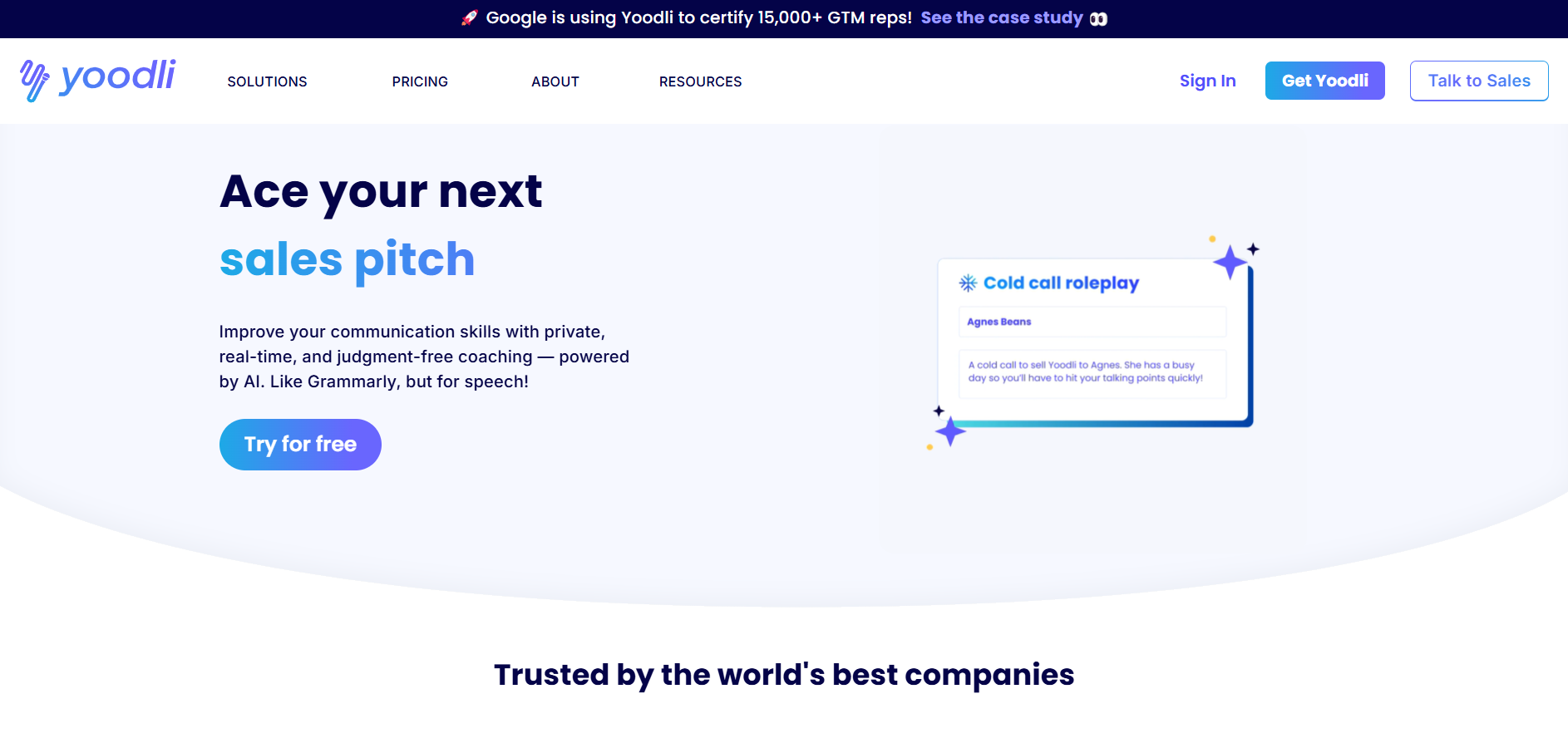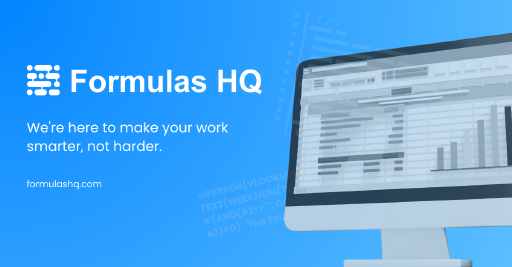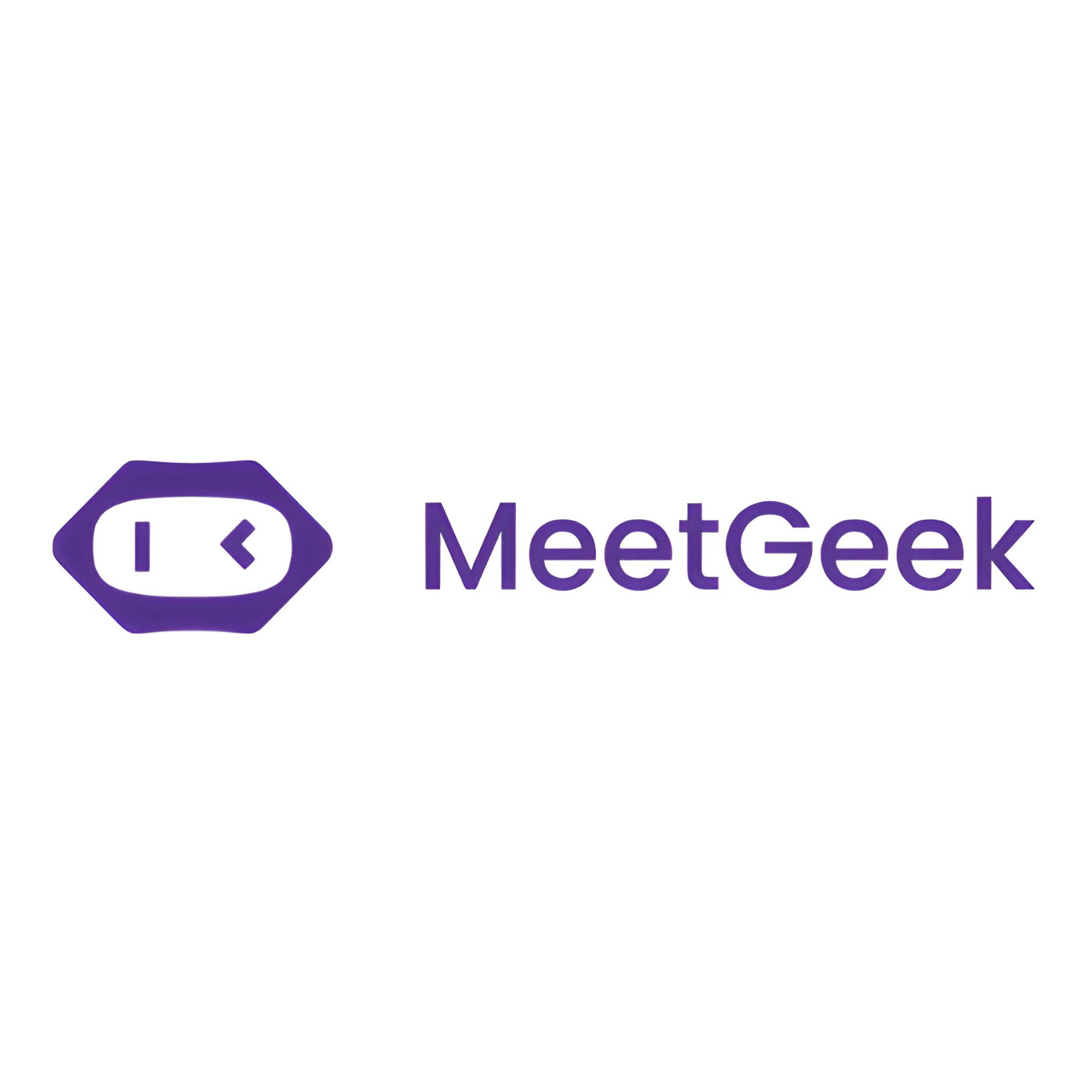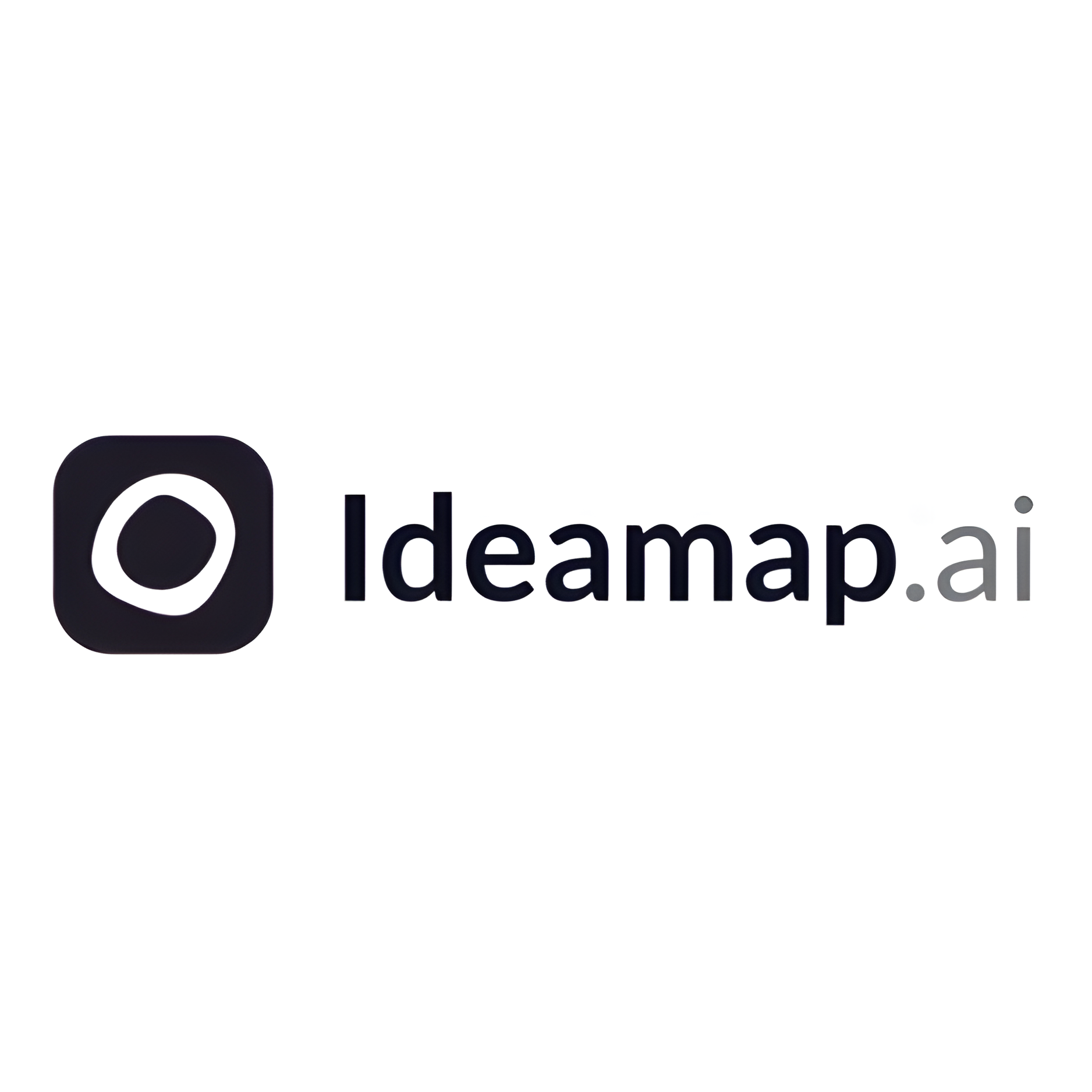Overview
Yoodli is an innovative AI-powered tool designed to refine communication skills through personalized, real-time coaching. This platform serves as a private tutor, akin to Grammarly for spoken language, providing users with the opportunity to enhance their abilities in delivering sales pitches, presentations, job interviews, and other key conversations. Yoodli is celebrated for its non-judgmental coaching approach, allowing individuals to practice and improve at their own pace while handling various simulated scenarios effectively.
The technology behind Yoodli enables users to customize their practice sessions with different conversation partners and specific speaking objectives, offering AI-driven follow-up questions to challenge and improve users' skills. It provides immediate feedback on speech content, delivery style, and overall progress, while ensuring complete privacy as all sessions are confidential and accessible only to the user.
For enterprises, Yoodli offers customized training modules that align with company-specific branding and communication standards. The platform supports continuous updates to learning materials, ensuring that training remains relevant and consistent across all levels of an organization. With its SOC 2 Type 2 certification, Yoodli guarantees a secure and reliable environment for corporate training, making it a trusted tool among leading companies like Google Cloud Enablement and Uber for enhancing workplace communication skills.
Key features
- Real-time feedback: Yoodli provides instant analysis on speech content, delivery, and overall effectiveness, helping users refine their communication skills on the spot.
- Customizable scenarios: Users can tailor their practice sessions with specific conversation partners and goals, enhancing relevance and applicability to real-world situations.
- Privacy and security: Speeches and practice sessions are kept private, with the platform ensuring that all data is secure, adhering to SOC 2 Type 2 standards.
- Progress tracking: The tool offers detailed metrics on speech clarity, use of filler words, and pacing, allowing users to measure improvement over time.
- Enterprise solutions: Yoodli for Enterprises enables organizations to integrate their brand voice and best practices into customizable training modules for consistent learning.
- Speaking analytics: Businesses can set benchmarks and track speaking performance across teams, using data-driven insights to drive communication training programs.
 Pros
Pros
- Accessibility features: Yoodli supports various accessibility options, including speech-to-text for hearing-impaired users, ensuring inclusivity in communication training.
- Interactive learning modules: The platform includes engaging, interactive exercises that enhance learning retention and make practice enjoyable and effective.
- AI-driven suggestions: Yoodli uses advanced AI to provide personalized tips and corrections, helping users improve specific areas of their speech dynamically.
- Multi-language support: The tool offers support for multiple languages, making it accessible for non-English speakers to practice and improve their communication skills.
- Mobile compatibility: Yoodli is available on mobile devices, allowing users to practice and improve their communication skills on-the-go.
 Cons
Cons
- Internet dependency: Yoodli requires a stable internet connection to provide real-time feedback and analysis, which can be limiting in areas with poor connectivity.
- Technology learning curve: New users may initially find it challenging to navigate and utilize all the features effectively, potentially delaying benefits.
- Limited human interaction: While Yoodli offers customizable scenarios, it cannot fully replicate the nuances and unpredictability of human interactions in practice sessions.
- Over-reliance on technology: Users might become overly dependent on the tool for feedback, potentially hindering their ability to self-assess and adapt independently.
- Generic feedback limitations: Although Yoodli provides detailed analytics, its automated feedback might not capture unique personal expressions or unconventional speaking styles.
















